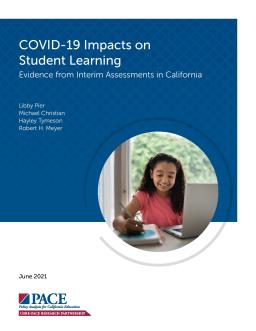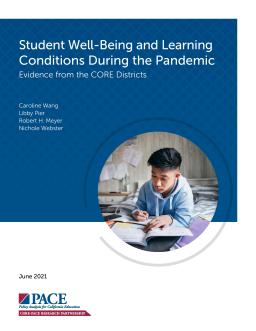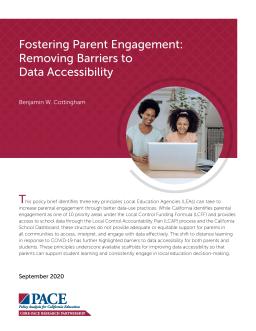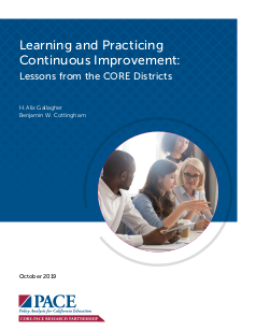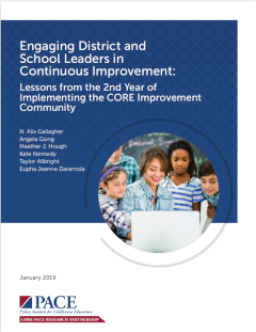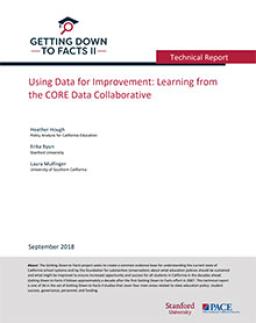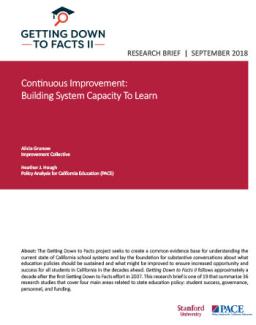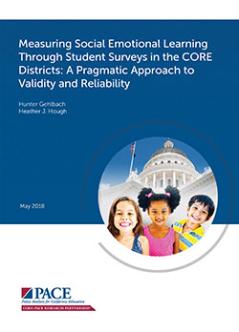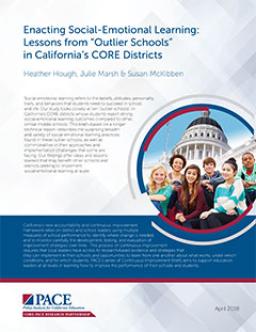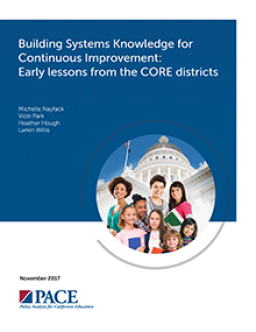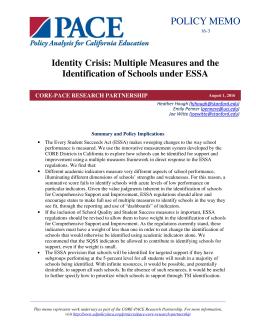Summary
Summary
Summary
Parental engagement is essential to improve academic outcomes for all students, particularly low-income, Black, and Latinx students. Distance learning has intensified the need for parental support, but state policies and tools for engagement are inadequate. Local Educational Agencies can remove barriers to data access and support parent engagement by following three key principles and taking related actions.
Summary
This report examines how California's education sector is embracing continuous improvement over standards-based reform. The study presents six lessons learned from PACE and CORE Districts' collaboration on the topic, including the complexity of embedding continuous improvement processes into school norms and the need for deliberate steps to build a culture conducive to continuous improvement. The report provides implications for broader continuous work in California and beyond, with three case studies providing more detail on exemplary practices in two districts and one school.
Summary
Summary
Effective data use is crucial for continuous improvement, but there is confusion about how it differs from data use for other purposes. This report explains what data are most useful for continuous improvement and presents a case study of how the CORE data collaborative uses a multiple-measures approach to support decision-making.
Summary
Continuous improvement in education involves engaging stakeholders in problem-solving to discover, implement, and spread evidence-based changes that work locally to improve student success. California sees it as central to enduring education transformation. It requires an initial significant investment in time and money to make it a reality, but can improve education quality. However, California's data systems are inadequate for helping districts monitor progress, and more training and coaching are needed to build expertise for statewide implementation.
Summary
Summary
This study explores ten "outlier schools" in California's CORE districts that have strong social-emotional learning outcomes. The brief and infographic summarize the various practices found in these schools and the common implementation challenges faced. The findings offer lessons that can help other schools and districts implement social-emotional learning at scale.
Summary
Summary
This report examines the Every Student Succeeds Act (ESSA) and how schools can be identified for support and improvement using a multiple measures framework. The authors find that different academic indicators measure different aspects of school performance and suggest that states should be allowed to use multiple measures instead of a summative rating. They also find that non-academic indicators are not given enough weight and suggest a clarification in federal policy.
